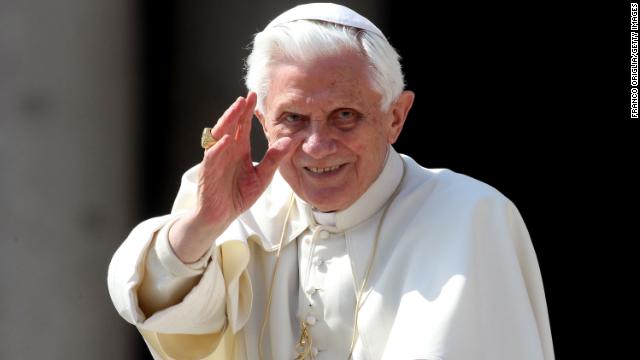Pope Benedict XVI dies: look at his achievements and his controversies 4:22
(CNN Spanish) --
Some Catholics will remember many things or not about the papacy of Benedict XVI, but what they will not forget is how it ended: his sudden announcement that he was resigning - the first pope in 600 years - and his dramatic departure left many the Church in uncharted territory.
But for some, the very fact that Cardinal Joseph Ratzinger became pope came as a surprise.
Vatican watchers predicted that after the death of John Paul II, the College of Cardinals would elect someone like him, a warm, pastoral pope.
But perhaps a non-European would better reflect the changing demographics of the Church.
The fact that they chose a German, who spent most of his career outside the parishes and within the rarefied world of Vatican politics, surprised some and worried others.
However, Ratzinger's predecessor and mentor paved the way for him by naming him prefect of the Congregation of Faith.
Pope Emeritus Benedict XVI: details of his life, his historic resignation, his controversies and more
The Vatican entrusted him with the application of ecclesiastical doctrine and the discipline of the clergy.
As a consequence, he was one of the few cardinals who was in regular contact with the other cardinals.
Furthermore, John Paul II further improved his odds by naming him dean of the College of Cardinals, tasked with voting to elect a pope where he had to guide the cardinals in a rare process.
From the start of his pontificate, Benedict XVI made it clear that he was not going to win a popularity contest.
For decades he had fought against what he called relativism: the flexibility of the principles of the Church in favor of a modern society.
For Benedict, the Church had to stand firm, even if it meant losing some Catholics who thought the Church should become more liberal.
If the Church were smaller, he often said, at least it would have the true defenders of the faith.
But at the same time, and perhaps it was a contradiction, he himself was faced with a kind of moral relativism.
As scandal descended on the Church and priests on both sides of the Atlantic were accused of sexually abusing young people and children, it became clear that Benedict, as a cardinal, had ignored or failed to discipline clergy accused of pedophilia. .
advertising
Pope Benedict XVI learned of abuse by priests when he led the Archdiocese of Munich, investigators say
The pope strengthened church laws against sexual abuse, increased punishments for sexual crimes, and extended the statute of limitations.
But throughout his papacy, Benedict failed to get past the scandal.
There were other controversies surrounding the pope before he was elected.
Benedict insisted that only the Catholic Church could guide the faithful to their salvation.
That Catholicism was the only true faith.
That upset Christians of other denominations.
He also angered Muslims with a speech early in his papacy, when he quoted an ancient emperor who branded Islamism as evil and inhumane.
A jinx for which he later apologized.
In an effort to purify his own Church, the pope attacked liberal theologians and those who wanted the Second Vatican Council's reforms to be fully implemented.
He made it clear that he was against homosexuality and feminism.
Pope Benedict XVI asks for forgiveness, but denies having acted wrongly in cases of sexual abuse
Something that hinted at confusion in the Vatican in 2012 was the accusation of the pope's butler of having leaked documents to the press about corruption and the issuance of state contracts.
The butler admitted his guilt and was sentenced to prison.
The pope later granted him a pardon.
After resigning, Benedict XVI became what the Church called an emeritus pope.
He never clearly explained what problems led him to resign.
Only he no longer had the strength to continue.
For this and other reasons, it is likely that Benedict XVI will not be remembered with the same affection as his predecessor, but rather as a transitional figure who tried to guide the Church through difficult times.
Benedict XVI

